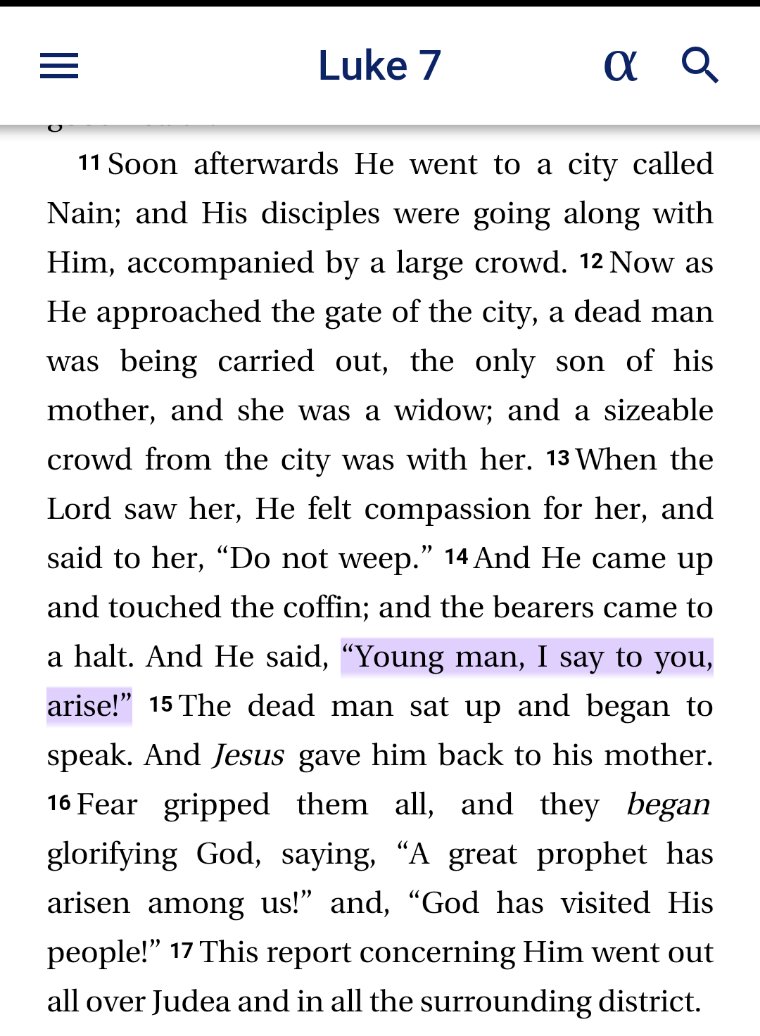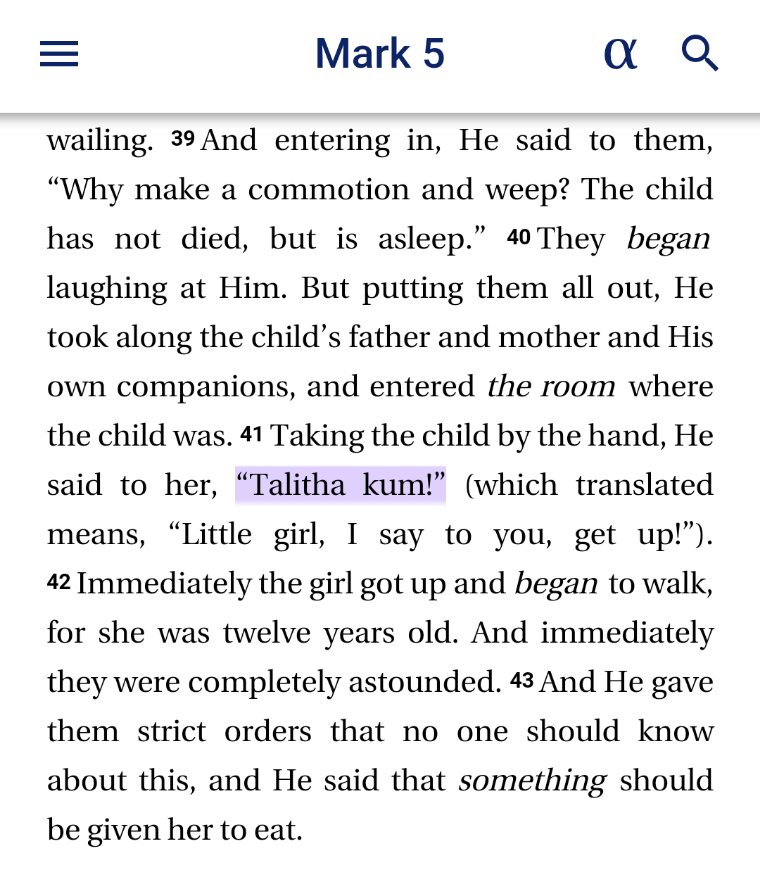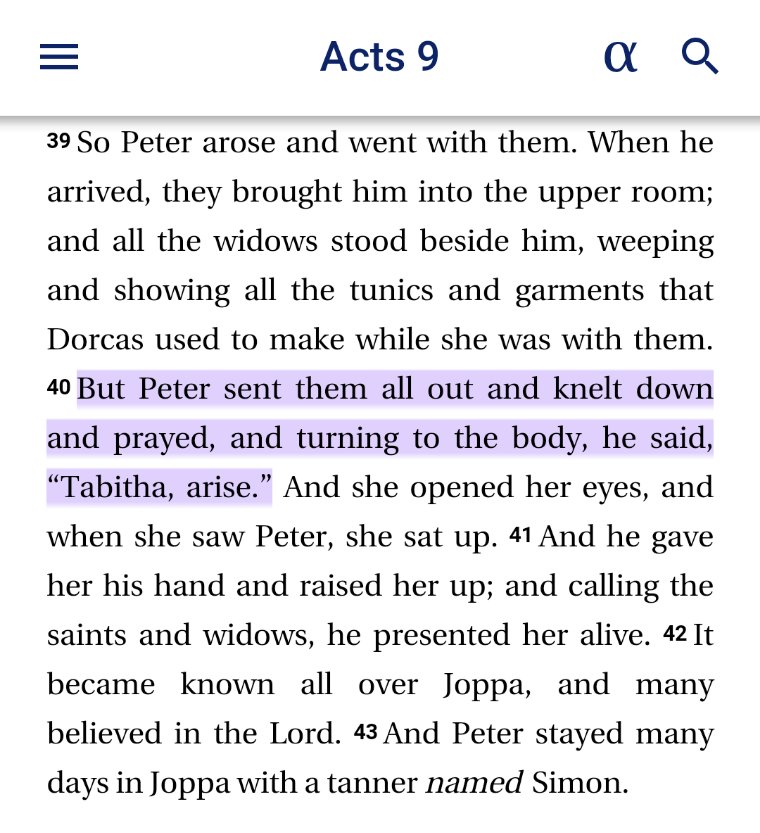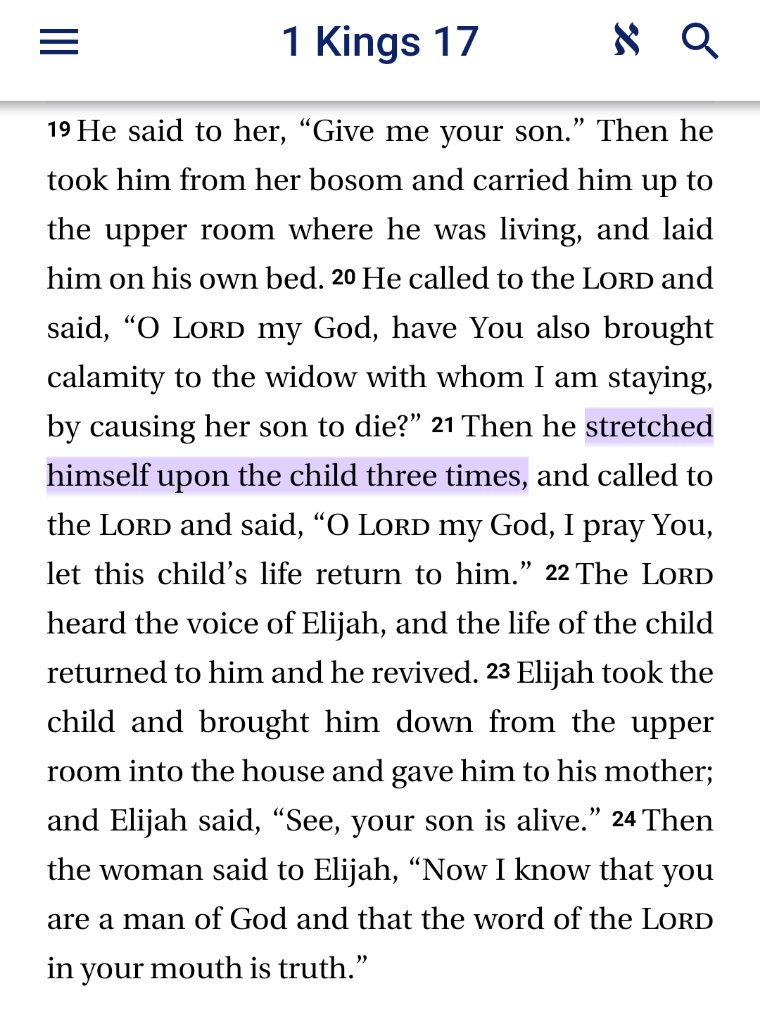
"Sometimes the primitive character of such an idea must be patiently elicited as a half-hidden survival from earlier times, which has become the vehicle of higher ideas. It will often involve a distinct effort to put aside the interpretation natural to an Augustine or a Calvin."
Aside: Calvin's theological thought would be far more helpful if his contemporary followers weren't so serious about it.
Aside: Not only is the human body thought to work this way but also the corporate body (see Acts 9:5; Matt 25:40, 45).
https://twitter.com/NicolasGold1/status/1445065884914102274?t=q-y4m_iRBUV5A6tS8HLvzA&s=19
In the extant ancient Hebrew literature, there is no word for brain. It may have been called "the marrow of the head" as in Syriac. No distinct term for nerve. In this, the center of consciousness did not lie in the head. No term for diaphragm or lungs ...
The visible movement of the abdomen in respiration would naturally suggest that the breath came from it (cf. "the breath of the belly," Job 32:18).
Three terms for breath-soul: 1) Neshamah (24x): principle of physical life or breath (9x), principle of the moral & physical life (3x), wind as God's breath, or human as individual person or breathing creature (similar to use of nephesh; these two uses not in Deuteronomistic).
2) Nephesh (764x): A) principle of life (282x), B) psychical (249×), C) personal (223x). Nephesh is closer in meaning to life, than soul (as in an aspect of a human distinct from the body). Robinson notes Ps 35 as an example where a false "spiritual' connotation can be assumed. 

Nephesh covers all kinds of states of consciousness: volitional (Gen 23:8), intellectual (Prov 2:10), emotional (Gen 42:21), appetite (Num 21:5), desire (Deut 21:14), whole inner life of thought & feeling (Ps 19:7), pathetic personal pronoun (Ezek 4:14), reflexive (Lev 11:43) ...
"individual person" (Gen 12:5), also a somewhat curious extension of meaning by which the principle of life comes to denote a dead body & is best explained thru the idea of the body, dead or alive, as the "person" (Num 5:2).
The nephesh "goes out" (Gen 35:18) and "returns" (1 Kings 17:21). The nephesh may die (Judg 16:30), but it is never used of the spirit of the dead.
3) Ruach (378x): A) wind, natural or figurative (131x), B) supernatural influences acting on man, rarely on inanimate objects (134x), C) the principle of life (like nephesh) or of its energies (39x), D) the resultant psychical life (74x). Not a mere synonym of nephesh.
Ruach not used of breath-soul in any pre-exillic document, though it occurs in the sense of "life-energy" in some early passages. Ruach is not used with psychical predicates pre-exile, though from exile onwards this usage becomes frequent.
In Psa & Prov, ruach is practically a synonym of both nephesh and "heart" (leb [presumably]).
Ruach denotes: the stronger emotions of passion (Judg 8:3), grief (Gen 26:35), zeal (Hag 1:14). Ruach in the sense of "breath" is specially connected to the nostrils (2 Sam 22:16; Ps 18:16; Ex 14:8; Job 4:9; 27:3; Lam 4:20; Gen 7:22).
The word for "nostril" in Hebrew is frequently used in the sense "anger" ('ap [e.g., Gen 27:45]). Term for "smell" closely connected w/ ruach. Natural to infer the term originally applied to "blowing" of the wind & the "blowing" or panting of men & animals in distress/excitement.
This would explain use of ruach in the pre-exillic period for wind caused by God (Ex 10:13), for passion, anger, etc. in man (Judg 8:3), strong energies of life (Gen 45:27; Judg 15:19; 1 Sam 30:12; 1 Kings 10:5) ...
... & for the external influence (ascribed to Yahweh) causing abnormal actions of men (insanity [1 Sam 16:14], prophesying [1 Sam 10:5, 6], extraordinary strength [Judg 14:6]).
"In this earlier period, ruach is confined to the stormier breathing of excited feeling, and the accompanying physical or mental condition; the contemporary term for the normal breathing of life is neshamah (as in the passage quoted from Gen 2:7 above)."
"The wind may have been already conceived in poetry as the strong 'breath' of God (2 Sam 22:16; Ps 18:16; Ex 15:8, if these are pre-exilic; cf. the post-exilic passages, Isa 30:28; 59;19; Job 4:9) ..."
"... but by the time of Ezekiel, we find that ruach has come to denote the normal breath-soul as the principle of life in man (Ezek 37:5, 6, 8), which is directly derived from the wind at the bidding of God (cf. Isa 42:5; Zech 12:1; Job 27:3; Ps 104:29; Eccles 12:7) ..."
"...and from this point onwards we find ruach following a line of development somewhat similar to that of nephesh, w/ which it may occur in parallelism (cf. Isa 26:9) ... [but] earlier emotional use for strong passion (anger, zeal, impatience) is still represented (Job 15:13)..."
"... whilst the higher associations of the ruach of God, developing with the conception of God himself, serve, on the whole, to keep the use of the term for human psychology at a higher plane of meaning than that of nephesh ..."
"... the point for present notice is the development of the two terms, nephesh and ruach, to denote lower and higher aspects of man's psychical nature, not sharply or systematically defined and distinguished ..."
"... but with a sufficiently clear distinction of emphasis, in view of the history of their respective developments."
Aside: That all makes sense to me, even if I question his pre-exilic and post-exilic designations. Along with the ruach as an external influence by God, causing abnormal actions like prophecy & strength, I would add creativity (see Exod 31:3; 35:1 [P-source]).
"The distinction between science and imagination, fact and metaphor, is a comparatively modern one. We still use the term 'heart,' for example, in a popular psychical sense, but every educated man knows that he is using it metaphorically ..."
"What the educated man frequently does not know, or, at any rate, forgets, is the fact that such usage is not metaphor in the Bible, but represents the extent of current scientific knowledge."
Aside: Previous generations of 20th century (Southern) Baptist theologians & scholars studied, noted, explained, & taught the "peculiarities" of biblical, Hebrew anthropology. I don't see evidence of such interest today. 1/2
Speculation: With a narrower, post-Conservative Resurgent conception of inerrancy & biblical authority, scrutiny of the biblical anthropological witness might call I to question the validity of that narrower conception. 2/2
The physical organs can be grouped into 3 classes: central, peripheral, or general. Of the central, 4 (heart, liver, kidneys, bowels) have acquired a psychical use in Hebrews. "Heart" (leb, lebab) (851x) grouped in 5 classes: A) physical or figurative ("midst" 29x);
B) personality, inner life, character in general (257x), C) emotional states of consciousness (166x intoxication, joy, sorrow, anxiety, courage, fear, love), D) intellectual activities (204x attention, reflection, memory, understanding, technical skill
E) volition or purpose (195x), this being one of the most characteristic usages of the term. The psychical range of "heart" is quite general.
"Liver" (kabed): (2x) the general life-center of consciousness, also glory. "Kidneys" (kelayoth): as an emotional center: (10x) joy, discontent, impulse to right action, desire. "Bowels" (me'im): (9x) sexual love, religious affection, compassion & pity, distress.
Peripheral: Eye (unsatisfied, expectant, asking, desiring, pleasurably, beholding vengeance, mocking, testifying, covenanting, proud, humble, pure, pitiless, evil). For Hebrew, an element of personality, w/ a psychical & moral life of its own, not mere condition of perception.
On how real this localization of function was, Robinson notes 2 Kings 4:34, saying it reflects the belief that the life of the separate organs was imparted by this local contact. 

Check this out: "But the argument has a greater significance for us here; it extends to more general terms, i.e., 'flesh' and 'bones,' and affords a natural line of explanation of the ethical development of 'flesh' in Pauline epistles." 1/2
As soon as I read the line noted in the tweet above referencing 2 Kings 4:34, I knew exactly where this was going: "flesh" (basar). 2/2
Aside: Here is an example of the deliberate parallels in 1-2 Kings, with Elisha following the work of Elijah. 



Luke does the exact same thing in his book. Jesus raises two in Luke (deliberate allusion to Elijah), then in Acts, Peter, then Paul parallel Jesus. Luke follows the same pattern w/ portrayals of Jonah in Luke-Acts. 







Oddly, Luke uses Mark's chp. 5 story w/ but doesn't include the "Talitha kum" line. However, in Acts, Peter says "Tabitha anastethi" which would have been in Aramaic "Tabitha kum." Luke surely understood the connection, but I've yet to understand what Luke was doing. 





Back to Kings, Matheney & Honeycutt (BBC) see the Kings-Acts parallels nothing, "the potent actions of the prophet were intended by contact to pass the warmth of his flesh and the vitality of his breath into the inert body." 





Walton, Matthews, etc. (IVP BBCOT) on 2 Kings 4:35: "In Mesopotamian incantation literature the touching of part to part is a means by which demons exercise power over their intended victims - it is the idiom of possession ...
"In this belief, vitality or life force can be transferred from one body to the other by contact of each part. By imitating the procedure believed to be used by demons, the prophet is able, through the power of Yahweh (notice the prayer), to drive the demons out ..."
"... and restore the boy's health. This is often considered to be one of the clearest cases of sympathetic magic in the Bible." They state the exact same thing with regards to 1 Kings 17, noting the latter episode is a fuller account of the former's procedure.
"Flesh" (basar) is used with a more or less psychical shade of meaning in about 45 cases (out of 266 in all), including 14 in which it is used of kinship (Gen 2:23,24). The flesh is contrasted with stone and bronze as being sensitive and warm with life; it suffers like the heart,
shudders in fear, is weary, abides in confidence, longs, enjoys wine, rejoices, sins, is influenced by mental state, and retains a certain sensitiveness, even after death." [FYI, Robinson includes Scripture citations, but, for my purposes in tweeting, I don't need to note them.]
Rereading John A.T. Robinson:
https://twitter.com/NicolasGold1/status/1332377570957012994?t=N5eUwrKFO4lf7uCT8QLW9Q&s=19
"When He had disarmed the rulers and authorities, He made a public display of them, having triumphed over them through Him" (Col 2:15 NASB).
JAT Robinson quotes the R.V. translation of Col 2:15, "Having put off from himself the principalities and powers, he made a show of them openly, triumphing over them in it" (i.e., the cross).
He notes the R.V.M. & many Latin Fathers, "Having put off from himself (his body), he made a show of the principalities ..." etc.
"Jesus' death can be called his 'circumcision' because the crucifixion was the real and complete laying aside of the flesh which circumcision is the partial symbol ..."
"The metaphor makes sense only if Paul understood the death of Christ as essentially 'the putting right off' of his flesh-body."
REO White (BBC) suggests "divested himself of" is possible. The ASV, DLNT, NASB, NASB95, NASB20, NLT, NRSV, and PT all give a version of it as an option in a fn. Only the GNT gives it in the main text: "And on the cross Christ freed himself of the powers of the spiritual rulers."
Chrysostom also translates in the middle voice making the Powers the object of the reflective act (Hom. on Col., 6). Naturally, the gnostics read the verse as stripping off "flesh." Wesley Carr thinks it's Jesus "stripping off" his "battle dress."
Last week I debated a gentleman who insisted "Christian baptism saves." I argued that Paul's use of the term referred to participation in Christ's death-resurrection of which "baptism" was a symbol not to be taken literally, using John 6:54 etc. as example. 1/2 

I could have used Colossians 2:11. Paul saying, "you were circumcized" is very much like him saying "you were baptized," or Jesus saying, "eat my flesh" & "drink my blood." Those all point to a "spiritual" reality of which the acts symbolize & point towards. 2/2 

So, we have this pattern:
Participate in Christ’s death-resurrection (Gal2:27; Col2:12;1Cor12:13;Rom6:3-5;2Cor5:14f)
Take off old self (Col2:11;3:9;Eph4:22;1Cor15:53f; 2Cor5:1-4,17)
Put on new self/Christ (Gal3:27;Col3:10;Eph2:15;4:24; Rom6:6;13:14;1Cor15:53f; 2Cor5:1-4,17)
Participate in Christ’s death-resurrection (Gal2:27; Col2:12;1Cor12:13;Rom6:3-5;2Cor5:14f)
Take off old self (Col2:11;3:9;Eph4:22;1Cor15:53f; 2Cor5:1-4,17)
Put on new self/Christ (Gal3:27;Col3:10;Eph2:15;4:24; Rom6:6;13:14;1Cor15:53f; 2Cor5:1-4,17)
So here is Col 2:11 …
“And in him you were also circumcised with a circumcision performed without hands, in the removal (apekdusei) of the body of the flesh (somatos tes sarkos) by the circumcision of Christ.”
“And in him you were also circumcised with a circumcision performed without hands, in the removal (apekdusei) of the body of the flesh (somatos tes sarkos) by the circumcision of Christ.”
Now here is Col 3:9 ...
“Since you stripped off (apekdusamenoi) the old human/self” (Col 3:9)
“Since you stripped off (apekdusamenoi) the old human/self” (Col 3:9)
John A.T. Robinson was absolutely correct. Colossians 2:15 is better translated as ...
“When he had divested himself [of the body of flesh], he made a public display of the rulers and authorities having triumphed over them through it [the cross or the divesting]."
“When he had divested himself [of the body of flesh], he made a public display of the rulers and authorities having triumphed over them through it [the cross or the divesting]."
JAT Robinson points out that in all of Paul's letters (even to the churches in which he's not yet visited), Paul assumes the Christians are somewhat familiar with the theology he's presenting. I myself have noted the idea in both the Johannine and Petrine literature.
Aside: Rereading Wink on Col 2:15 (which he gets wrong, rejecting JAT Robinson), he notes the defeat of the Powers in Col 2 as in the past but in 1 Cor 15 the defeat is future. He correctly states, the Col 2 "defeat" is more aptly a dethronement.
Col 2:15 ... Here's another example connecting Ancient Hebrew (AHA) Anthropology (corporate solidarity, I think) w/ the Powers. And this one is extremely significant b/c it connects Christ's defeat of the Powers on the cross w/ AHA ... I think I just had an AHA! moment.
Back to H.W. Robinson: "'Bone and flesh' together (or separately) serve to express kinship (Gen 29:14; cf. 2:23), or the general idea of 'body: for which Hebrew has no proper term, the latter fact is very significant in view of what has been said as to the absence of dualism ..."
"Another term employed to express 'body' is that denoting 'belly' (beten) (Pss 31:10; 44:26; Hab 3:16; Prov 20:27, 30)." Term used to express appetite & greed, which prepares for the use of koilia in the NT.
Inter-relation of the resultant terminology: The parallel development of the breath-soul and the physical organs issues in four terms of primary importance: "heart," nephesh, ruach, & "flesh." By the latter half of the OT period, they have ceased to be independent.
It is not possible to give any exact differentiation of the providences covered by "heart," nephesh, & ruach, because no such differentiation was ever made. Alternatives of expression for the same state of consciousness could be employed until the close of the OT.
The unity of the personality as conceived by the Hebrew, found it's emotional expression chiefly under the name nephesh, while intellectual & volitional in the heart. Consciousness, therefore, finds it's complete expression in Deut 6:5 ... 

All four terms simply present different aspects of the unity of personality. "The Hebrew idea of personality is that of an animated body, not (like the Greek) that of an incarnated soul."
Back from chasing rabbits ...
H.W. Robinson notes the shift in later Judaism from the conception of Sheol as a land of shades but not real persons to the idea of spirits continuing to live even if bones in the earth (Jubilees 23:31). The non-moral realm of Sheol is differentiated on ethical lines (Enoch 23).
"Christian ethics makes demands that seem impossible without Christian faith."
He notes that "Paul, in spite of the use of some Greek terms, remains psychologically what he calls himself, a Hebrew of the Hebrews; the advances he makes on the conceptions of the OT are a natural Jewish development ... his modifications are due to his personal experiences."
I agree w/ the above. One error I see among many great scholars is to think too much of Paul's terminology, thoughts, & theology are Greek in origin. That's usually where I see people going astray. A 2000 yr old problem.
A good book. Surprisingly, even though Robinson is the "father" of the ancient Hebrew conception of corporate solidarity/personality, the subject was barely mentioned."
• • •
Missing some Tweet in this thread? You can try to
force a refresh





